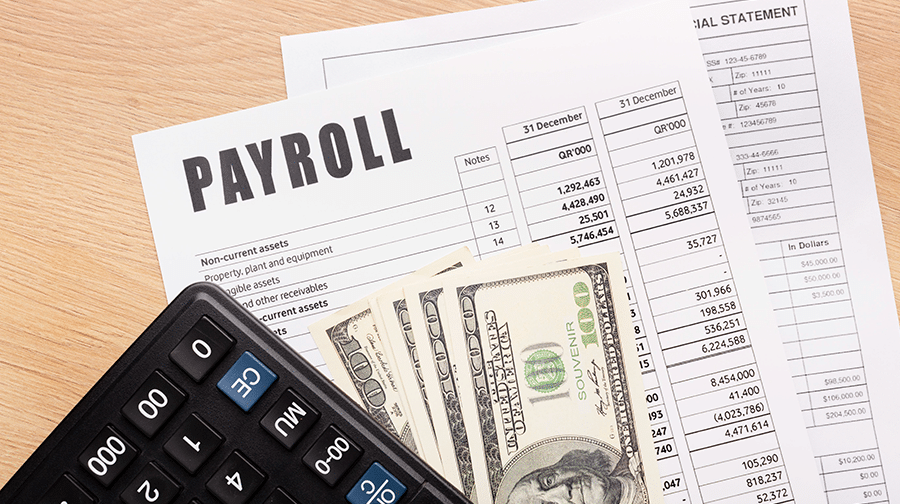What Are Payroll Taxes? FICA, FUTA, and the Trust Fund Liability
Tax Relief Advisers specializes in Payroll tax issues. We are experts at working with small businesses and Payroll tax problems. What are payroll taxes and what happens if you don’t pay your payroll taxes?
What are Payroll Taxes?
Payroll Tax has two components: contributions withheld from your employee’s wages, and matching taxes paid by you to the employer (also known as the Trust Fund Portion).
How is Payroll Tax Calculated?
The tax is based on wages, salaries, and tips paid to employees.
Federal payroll tax is 7.65%, which is divided between Social Security (6.2%) and Medicare (1.45%). In addition, employers withhold federal income tax estimates based on information provided by the employees on their W-9 forms.
More about Social Security
Anything paid into Social Security through payroll tax goes into two trust funds: old age and survivors insurance (OASI) and Disability Insurance Trust Fund, for disability benefits.
More about Medicare
Medicare is federal health insurance for people over 65 or disabled. Payroll taxes go into two separate trust funds: the Hospital Insurance Trust Fund and the Supplementary Medical Insurance Trust Fund.
What is the Employer’s Responsibility for Payroll Tax?
According to the IRS, “Employers must report income and employment taxes withheld from their employees on an Employer’s Quarterly Federal Tax Return (Form 941) and deposit these taxes in full to an authorized bank or financial institution pursuant to Federal Tax Deposit Requirements.”
Employers are also responsible for filing and depositing a FUTA return annually.
Employers who do not comply with the employment tax laws may be subject to criminal and civil sanctions for willfully failing to pay employment taxes.
Employees’ Responsibility
Employees who personally remit or do not have taxes withheld by their employer may not qualify for Social Security, Medicare, or unemployment benefits.
What Happens if You Don’t Pay Payroll Taxes?
Evading payroll taxes comes with a price for both employers. Employers may face criminal and civil sanctions, will be interviewed or contacted by an IRS Revenue Officer and required to provide extensive documentation that can include a 4180 face-to-face interview. To avoid this you need an authorized and licensed Individual to act on your behalf.
If you fail to comply with IRS tax code, the IRS will assign a Revenue Officer to your case. If you didn’t file the quarterly returns, the IRS will estimate your tax bill based on the amounts you reported on your previous Form 941s.
You may receive a bill before an IRS officer contacts you. If you continue to ignore the issue, the IRS can seize your business bank accounts, accounts receivables, inventory and business assets to satisfy the unpaid tax amount. They will also come after you and any “responsible party” personally. You are NOT protected by the business.
There are various penalties the IRS may hit you with, including:
- Civil Late Payment Penalties
- If the IRS identifies you as a responsible person, you can be personally hit with the Trust Fund Recovery Penalty
- The Trust Fund Recovery Penalty is equal to 100 percent of the unpaid payroll tax, including penalties and interest
- Criminal Late Payment Penalties
- Also called tax evasion
- Tax evasion penalties include a maximum fine of $500,000 and up to five years in prison
- Also called tax evasion
What Tax Relief Advisers Can Do For You
To avoid dealing with the above enforcement action, trust Tax Relief Advisers to help. We will save you time, money and frustration.
And how do we know this? We are Internal Revenue Service (IRS) Enrolled Agents; we are former IRS Revenue Offers; We are Certified Public Accountants (CPAs); and we are here to help you. We will stop collection actions from IRS Revenue Officers and take over all communication with the IRS. You will not have to deal with them again.
We offer boutique-style services — the person you talk to on the phone is someone who is certified to help you.
We can put an end to IRS Wage Garnishment, which is when the IRS seizes part of your wages.
Another service we offer is Payroll Tax Debt-Trust Fund Recovery. It is possible to reduce payroll tax debt through the trust fund process. Payroll taxes are complex but there are solutions and methods to reduce or eliminate them. Failure to pay Payroll Taxes opens yourself up to civil and criminal penalties. You don’t want novice advice.
Penalty abatement can be requested to remove penalties imposed by the IRS. Penalties can be severe but can often be avoided or removed. Give us a call today to set up your free consultation and get your taxes under control.
